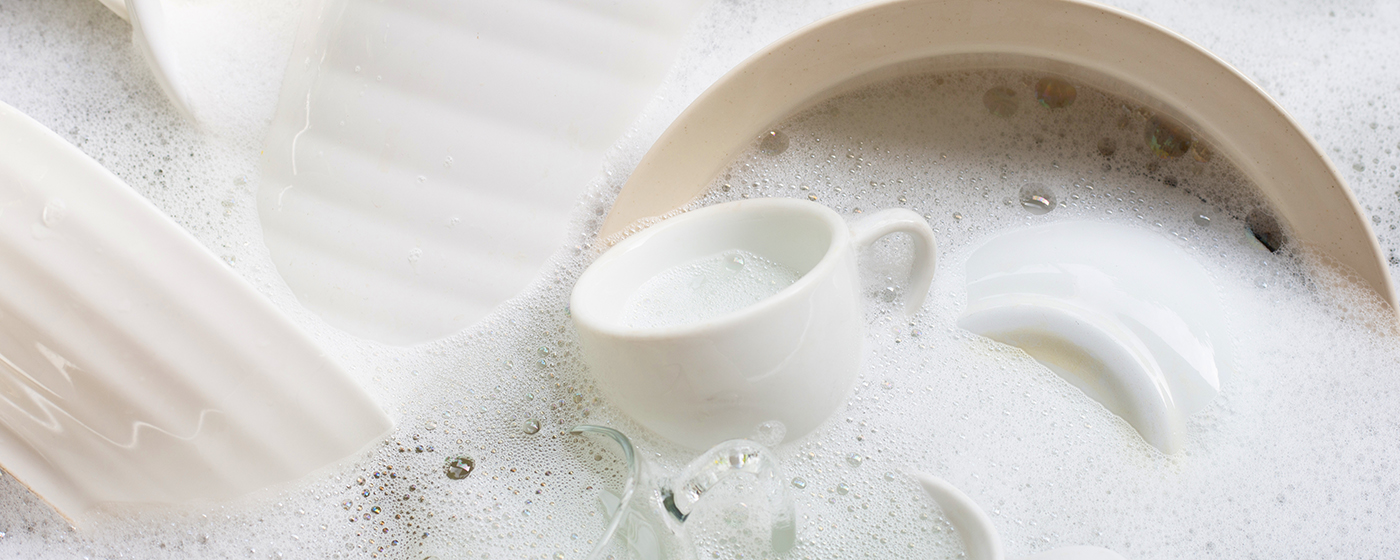Detergents, Dishes/Laundry

Hazardous Ingredients:
Cationic and anionic detergents, phosphates, sodium carbonate, sodium perborate (brightener), various surfactants
Potential Hazards:
May be harmful if swallowed or cause mild to severe irritation and burns from skin and eye contact; liquid dishwashing detergent is the least hazardous.
Use and storage:
- Carefully read labels to determine the hazards associated with the detergents in your home.
- Keep container lids tightly closed when not in use and store in a secure area with child-resistant cabinet latches or on a high shelf out of reach of children and pets.
- Powdered rather than liquid detergents may be a safer choice if you have small children in the home, since powdered detergents are less likely to be swallowed accidentally.
Disposal:
- Best: Use up or give away. Rinse out empty container and recycle if the type and color of plastic or paperboard is recyclable in your area. Call your garbage hauler or local recycling center for container recycling information. If containers are not recyclable, dispose of in the garbage.
- Second Best: Hold for a household hazardous waste collection. In Oregon, call 1-800-732-9253 to find out if there is a hazardous waste collection event scheduled in your community, or call your garbage hauler, local government solid waste department or the Oregon Department of Environmental Quality at (503) 229-5913 or toll-free at 1-800-452-4011.
- MORE on: How to Toss Your Toxic Laundry Detergent
Alternatives for general cleaning
Use the mildest product for your needs. Liquid dishwashing detergent and laundry soap are mildest, laundry detergent is moderate and automatic dishwashing detergent is harshest.
For dishwashers
Use half the recommended amount of automatic dishwashing detergent.
For laundry
Use white vinegar as a laundry helper. Adding 1 to 2 cups of vinegar to the final rinse eliminates soap residue. Vinegar also breaks down uric acid. Add 1 cup of vinegar to rinse water when washing baby clothes. WARNING: DO NOT USE VINEGAR IF USING CHLORINE BLEACH. IT WILL PRODUCE TOXIC VAPORS.






